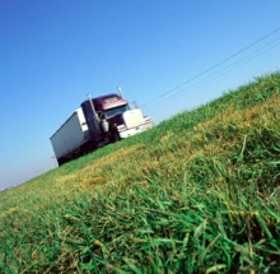How To Lower Blood Pressure Before DOT Physical
Topic 2598 | Page 3

I agree with what Rick has stated above. I suppose if a doctor specifically wanted to target a particular patient, to check to see if they had something in their bloodstream, they could test for that, but it isn't likely. 99% of the drug tests, check for drugs that either have resale value, addictive chemicals, or both. Since blood pressure meds are some of the cheapest meds available, even without prescription, it is highly unlikely a test for any of them would be performed.
The drugs they habitually check for, for a variety of reasons, fall into 2 categories. The first category they are checking on, is to see if you are actually taking what you are prescribed, if that drug has a potential resale value (such as pain meds.) If you actually need the drug, but it's not in your system, there is a good chance some or all of it is being sold on the street. Some drugs like oxycodone can kill someone the first time they take them, because the person has not been gradually introduced to the drug, the way prescription drugs are prescribed. This is the reason they want to stop the resale activity pronto.
The other drugs they are checking for, are illegal street drugs that are not available at all, without prescription. Most offenders will end up getting caught eventually, if they are not taking what they are prescribed within that realm, or partaking in the other category for recreational use.
Until you hear about people being able to chop up blood pressure meds and snort them for a high, I seriously doubt you will ever see someone blood or urine tested for them.
Also, what Rick said about blood pressure meds needing to be monitored by your GP is absolutely true. For instance you could double up on your blood pressure meds, and have all sorts of side effects, such as your ankles and feet swelling up to the point you can no longer put your shoes on.
The only reason I mentioned aspirin, is because it is over the counter and will definitely thin your blood, and in turn drop your blood pressure.
Also, blood pressure meds build up in your system, so what Rick said about needing to take it longer than 2 days to get results is true. My GP told me that my BP med will take a full 3 weeks for it to leave my system, were I to run completely out of my prescription.
Also, he told me that running out for a week is no big deal from a health standpoint. He said the danger is keeping high blood pressure week after week, month after month, year after year. The cumulative effect can set you up for a stroke, and strokes are serious business. He told me that years ago, the medical community thought what is now considered pre-hypertension was a safe level, but now they know it is not, and they begin to prescribe mild high blood pressure meds now for pre-hypertension, to prevent the long term cumulative effects that lead to stroke.
The reason I point this out, is that aspirin is only extra insurance to help drop your pressure before a test, but that's about it. You need to consult with your GP for safe long term treatment for high blood pressure.
Hypertension:
Abnormally high blood pressure.

Lowering Your Blood Pressure for the DOT/CDL Physical
What Truck Drivers Need to Know about Lowering Blood Pressure with new updated Guidelines……………… •Truck drivers with high blood pressure can be medically certified to drive, but will have to lower their BP to under 140/90. •Drivers with high blood pressure who have been medically certified will be required to recertify at least once each year rather than every 2 years. •Blood pressure medication is an FMCSA acceptable method for BP control, but there are also lifestyle methods that will help drivers stay healthy and fit for driving. •Small changes in diet, weight, exercise, and sleep patterns can help lower blood pressure both short and long-term. •People with high blood pressure should always consult with their doctor before undergoing any extreme diet or lifestyle changes.
Lowering Your Blood Pressure: Before Your DOT Physical
There are a number of things you can do to keep your blood pressure low in the days leading up to your DOT physical. These “fixes" are things that should generally be applied long-term also in the interest of good health. That being said, if your DOT physical is coming up and you need some tips that could lower your BP quickly, below are some ideas that may help: •Eat potassium-rich foods.
Both short and long-term, potassium has been proven to help lower blood pressure. Eating foods like bananas, white beans, leafy greens, potatoes, and dried apricots could help lower blood pressure within a couple hours of eating them. •Drink plenty of water.
Proper hydration is an essential part of overall health. If your body does not get enough water, it could retain a higher level of sodium (salt), which is a medically accepted cause of high blood pressure. •Lay off the coffee, cigarettes, and booze.
Caffeine, nicotine, and alcohol have all been proven to increase blood pressure, especially in the short-term. Excessive alcohol use has an especially direct connection to higher blood pressure. While coffee and nicotine appear to have a somewhat minimal long-term effects on blood pressure in general, consumption generally will raise BP immediately and temporarily. •Eat fruits & vegetables.
The health benefits of fruits & vegetables are many and varied, and they should be consumed at every opportunity. •Get some sleep.
Especially for chronically sleep-deprived truck drivers, a 45-minute nap during the day has been shown to lower blood pressure. Less sleep has been linked to increased risk of hypertension and general cardiovascular (heart) problems. •Take a deep breath, meditate.
Whatever your method, reducing stress in general will have a positive effect on your blood pressure. The American Heart Association has released a scientific statement on alternative approaches to lowering blood pressure that acknowledges that there is some benefit to meditation as far as your heart is concerned.
Long-term Methods of Lowering Your Blood Pressure:
The struggle to maintain a healthy lifestyle on the road when your job depends on speed, efficiency, and the ability to sit in one place for extended periods of time is well-documented. Truck drivers who have been diagnosed with high blood pressure (hypertension), in addition to taking prescription medication, would generally do well to pay attention to certain areas of their health: •Exercise and lose weight.
Exercise strengthens your heart. A stronger heart pumps more blood with less effort, decreasing the force put on your arteries so lowering blood pressure. Studies have also shown that even a modest weight loss of 5-10 pounds or so will reduce blood pressure.
The American Heart Association recommends getting at least 150 minutes of moderate exercise, 75 minutes of vigorous exercise or a combination of both each week. Breaking it up into shorter "bursts" counts, so it doesn't have to be done in big chunks.
Even with the notoriously haphazard schedule of a truck driver, there are still plenty of ways to get exercise on the road. There are many options for both inside and outdoor activity, like weight training or running.
Modest Weight Loss Cuts Hypertension •Change to a healthier diet and lay off the salt.
Less sugar, salt, and fat, and more water and "real" foods.
Planning ahead is a key to eating healthy on the road. Pack a cooler with fruits, vegetables, and meals. Some drivers keep electric coolers or refrigerators in their truck with them, and there are plenty of snacks available that do not require refrigeration. A healthy diet on the road will also help your alertness and decision-making skills, making you a safer driver.
It is estimated that 77% of a person's salt intake comes from processed or restaurant foods. These days, despite your craving for a delicious, greasy, fast-food burger, there are healthier alternatives at every turn. Most fast-food places will offer salads or chicken or some other low-fat, low-salt alternatives.
Also drink tons of water. Not only does hydration help keep blood pressure under control, but it will help eliminate bodily waste.
•Quit smoking.
While smoking has not definitively been linked as a cause of long-term hypertension, every cigarette you smoke raises your blood pressure temporarily. So heavy smokers will tend to have more sustained periods of high blood pressure than non-smokers, putting additional stress on their cardiovascular system...
CDL:
Commercial Driver's License (CDL)
A CDL is required to drive any of the following vehicles:
- Any combination of vehicles with a gross combined weight rating (GCWR) of 26,001 or more pounds, providing the gross vehicle weight rating (GVWR) of the vehicle being towed is in excess of 10,000 pounds.
- Any single vehicle with a GVWR of 26,001 or more pounds, or any such vehicle towing another not in excess of 10,000 pounds.
- Any vehicle, regardless of size, designed to transport 16 or more persons, including the driver.
- Any vehicle required by federal regulations to be placarded while transporting hazardous materials.
CSA:
Compliance, Safety, Accountability (CSA)
The CSA is a Federal Motor Carrier Safety Administration (FMCSA) initiative to improve large truck and bus safety and ultimately reduce crashes, injuries, and fatalities that are related to commercial motor vehicle
FMCSA:
Federal Motor Carrier Safety Administration
The FMCSA was established within the Department of Transportation on January 1, 2000. Their primary mission is to prevent commercial motor vehicle-related fatalities and injuries.
What Does The FMCSA Do?
- Commercial Drivers' Licenses
- Data and Analysis
- Regulatory Compliance and Enforcement
- Research and Technology
- Safety Assistance
- Support and Information Sharing
DOT:
Department Of Transportation
A department of the federal executive branch responsible for the national highways and for railroad and airline safety. It also manages Amtrak, the national railroad system, and the Coast Guard.
State and Federal DOT Officers are responsible for commercial vehicle enforcement. "The truck police" you could call them.
Hypertension:
Abnormally high blood pressure.
Fm:
Dispatcher, Fleet Manager, Driver Manager
The primary person a driver communicates with at his/her company. A dispatcher can play many roles, depending on the company's structure. Dispatchers may assign freight, file requests for home time, relay messages between the driver and management, inform customer service of any delays, change appointment times, and report information to the load planners.
Just took my first DOT physical and passed. I take BP medicine, potassium, magnesium, baby aspirin every day and it does not help if you are nervous about your blood pressure. As soon as you walk into the doctors office, bam, high blood pressure. When they first took mine it was 150/85. I had taken my blood pressure 2 hours before I went in and it was 124/72. I took a picture of the reading on my phone to save for the doctor in case I got white coat syndrome, which I did. I showed the doc the picture and he said that if he had a $1 everytime someones blood pressure went sky high when they came into his office he would not need to practice medicine ever again. He took my blood pressure manually again and I took a few deep breaths and closed my eyes and relaxed and it was 128/70. Just be honest with the doc, and everything will work out fine, but if you do have hypertension , get on the medicine because a stroke is not something you want. Nothing like having to have some one change your diaper and feed you because you were too stubborn to take the medicine.
DOT:
Department Of Transportation
A department of the federal executive branch responsible for the national highways and for railroad and airline safety. It also manages Amtrak, the national railroad system, and the Coast Guard.
State and Federal DOT Officers are responsible for commercial vehicle enforcement. "The truck police" you could call them.
Hypertension:
Abnormally high blood pressure.
Any suggestions on how to lower BP before my dot physical tomorrow? I'm a 37 year old smoker a little over weight I don't drink or use drugs ..my BP runs a tick over on my lower number than what dot allows and help would be appreciated
Drink some passion fruit juice I buy it in the frozen concentrate at the grocery store I haven't had to take medicine since
DOT:
Department Of Transportation
A department of the federal executive branch responsible for the national highways and for railroad and airline safety. It also manages Amtrak, the national railroad system, and the Coast Guard.
State and Federal DOT Officers are responsible for commercial vehicle enforcement. "The truck police" you could call them.
Any suggestions on how to lower BP before my dot physical tomorrow? I'm a 37 year old smoker a little over weight I don't drink or use drugs ..my BP runs a tick over on my lower number than what dot allows and help would be appreciated
Drink some passion fruit juice I buy it in the frozen concentrate at the grocery store I haven't had to take medicine since
Passion fruit juice is a great idea. I can tell you what NOT to do. Don't get prescribed BP meds then go on a four day water fast. Man, that was not a smart thing to do. I loved the fast, felt great, until the side effects of the meds kicked in and my body got all wonky and decided to flush its electrolytes. Got dehydrated, even while drinking a gallon of water a day, and my pulse rate went sky high. So, broke the fast, doc prescribed new meds just in case, and all is well once again and BP is at 127/76. So...eat a healthy, low sodium, diet--I do Keto, so no carbs, sugar, etc, and have lost thirty pounds in a month--and exercise. But don't fast on a new med. I'm usually a tad bit smarter than that. ;-/
DOT:
Department Of Transportation
A department of the federal executive branch responsible for the national highways and for railroad and airline safety. It also manages Amtrak, the national railroad system, and the Coast Guard.
State and Federal DOT Officers are responsible for commercial vehicle enforcement. "The truck police" you could call them.

NSAIDs like aspirin, ibuprofen, naproxen, and others all have the capacity to increase blood pressure. The average increase is small, but the actual amount of increase can vary widely from individual to individual. This effect occurs at doses that are typically used for pain relief and reduction of inflammation.
New Reply:
New! Check out our help videos for a better understanding of our forum features

















Preview:
This topic has the following tags:
Blood Pressure DOT Physical Health Concerns







 TT On Facebook
TT On Facebook
Not to debate you here Brett - but BP meds aren't going to show up in a standard 10 Panel Drug Screen:
Amphetamines (meth, speed, crank, ecstasy) THC (cannabinoids, marijuana, hash) Cocaine (coke, crack) Opiates (heroin, opium, codeine, morphine) Phencyclidine (PCP, angel dust) Barbiturates (phenobarbital, butalbital, secobarbital, downers) Benzodiazepines (tranquilizers like Valium, Librium, Xanax) Methaqualone (Quaaludes) Methadone (often used to treat heroin addiction) Propoxyphene (Darvon compounds)
The DOT Drug Test is looking for illegal and prescription drugs that pose a safety risk. They're not looking to bust you for "undeclared BP meds".
That being said - wouldn't advise taking ANYONE'S MEDS that aren't prescribed to you. You have NO IDEA how you are going to react to them, many people have adverse reactions to BP meds and have to try a couple before they find one that works without negative reactions. My doctor switched my meds once (for something generic and less expensive) and I thought I was having a heart attack - ended up in the ER. And for BP meds - you need to be on them for awhile (5-7 days) for them to be effective. You can't just pop a couple on your way to the physical.
Rick
DOT:
Department Of Transportation
A department of the federal executive branch responsible for the national highways and for railroad and airline safety. It also manages Amtrak, the national railroad system, and the Coast Guard.
State and Federal DOT Officers are responsible for commercial vehicle enforcement. "The truck police" you could call them.